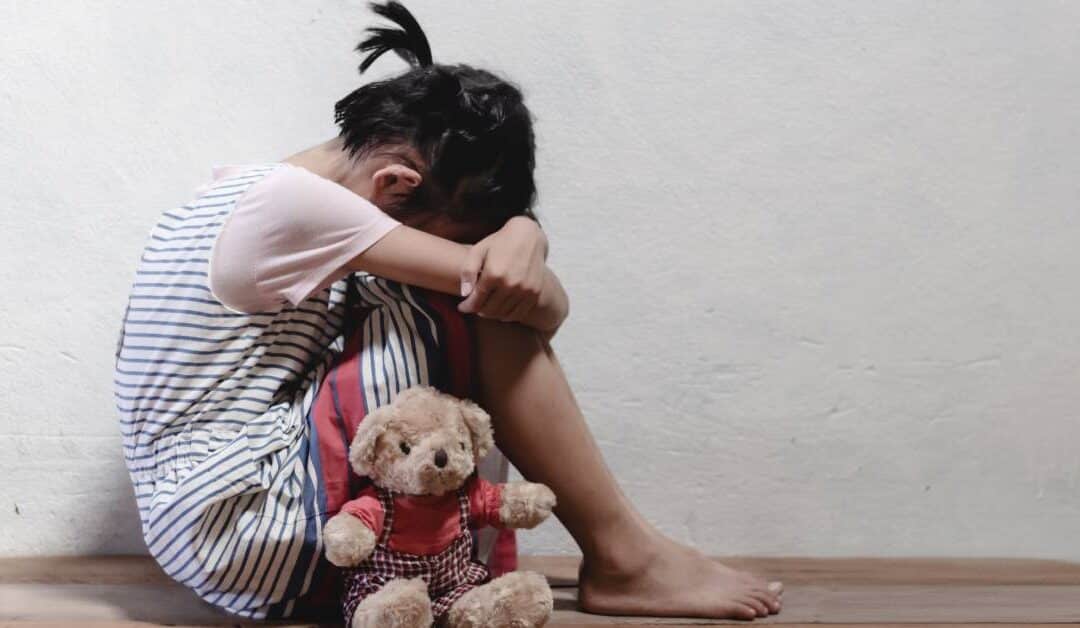Part of the human condition is to face adversity, learn from it, and ultimately overcome it. However, some challenges are more complex and leave a lasting imprint on your psyche, such as traumatic experiences during childhood.
Childhood trauma refers to experiences that are emotionally or psychologically harmful during one’s early developmental years. Such events can disrupt a child’s sense of security and well-being, influencing their development in profound ways. They may even repress these memories, but that repression doesn’t eliminate the trauma. There are a few key signs to look for that you’re repressing childhood trauma, signs that this trauma is still in your life and influencing you even though you’ve repressed it.
Difficulty Remembering Parts or All of Your Childhood
Individuals dealing with repressed trauma may have significant gaps in their memory, often forgetting entire periods of their childhood or specific events that occurred. These memory lapses can be the brain’s way of protecting you from distressing experiences that might have happened during those formative years, essentially shielding you from potentially overwhelming emotions.
Sometimes, these memories are not just forgotten–they may also be altered or fragmented, making it challenging to piece together a coherent narrative of one’s early life. This can affect one’s sense of identity and continuity, as these formative experiences shape who we become.
Frequent Nightmares or Flashbacks
When the mind faces unresolved trauma, unwanted memories often resurface as vivid dreams or intense flashbacks. These can be distressing, causing significant disruption to your sleep patterns and daily life. The episodes may involve a replay of unresolved emotions or traumatic events that the mind hasn’t fully processed, serving as a reminder that these issues require attention and healing.
The intensity of these flashbacks can vary, sometimes feeling as real as the initial experience, triggering physiological responses such as sweating, a rapid heartrate, and feelings of panic. Any of these physiological responses will complicate someone’s ability to differentiate between the past and present.
Emotional Detachment or Numbness
Feeling disconnected from your emotions or those around you can be a coping mechanism developed as a means to avoid experiencing pain. This state of emotional detachment may lead to difficulties in forming deep and meaningful relationships or feeling genuinely present in your own life, as it acts as a barrier to emotional engagement and vulnerability. Over time, this detachment can extend beyond relationships, affecting one’s ability to find joy or satisfaction in activities they once loved, leading to a more pervasive sense of emptiness or dissatisfaction.
Experiencing Intense Emotions Without Understanding Why
Sudden and overwhelming emotions that seem to arise without any apparent reason can be indicative of unresolved trauma. These emotional surges might be tied to memories or feelings that linger beneath the surface, waiting for acknowledgment and resolution. Understanding their origin can be the first step towards healing. These emotions might be accompanied by physical symptoms such as chest tightness or a sense of dread, making it essential to explore these feelings with patience and self-compassion.
Chronic Physical Symptoms With No Apparent Medical Cause
Unexplained headaches, stomachaches, or other physical ailments often have a link to suppressed emotional pain. The body can manifest prolonged stress and unresolved trauma through physical symptoms, serving as a cry for help when emotional needs are unmet. This psychosomatic response highlights the intricate connection between mind and body, where emotional distress cannot always be separated from physical health.
Struggling With Relationships and Intimacy
Trust issues and difficulties in forming close bonds may stem from early traumatic experiences that have left an imprint on one’s ability to open up and be vulnerable. This struggle can create significant barriers in developing healthy, meaningful connections with others, impacting both personal and professional relationships. Such struggles often lead to patterns of behavior that sabotage closeness, such as pushing people away or becoming overly independent.
Persistent Feelings of Fear, Shame, or Guilt
Lingering negative emotions of fear, shame, or guilt can be remnants of past trauma that have yet to be addressed. These feelings can weigh heavily on an individual, interfering with their ability to lead a fulfilling life and often acting as persistent reminders of the trauma. They may manifest in a variety of contexts, influencing decision-making and life choices, and can perpetuate a cycle of avoidance or self-punishment.
Avoidance of Situations or Places That Remind You of the Trauma
Steering clear of specific triggers, such as locations, activities, or situations, might seem like an effective short-term strategy to avoid reliving painful memories. However, this avoidance can significantly restrict one’s life, limiting the potential for healing and personal growth in the long term. Avoiding these situations or places can prevent individuals from engaging in activities they once enjoyed, furthering their sense of loss and disconnection from the world.
Feeling Disconnected From Your Own Thoughts and Emotions
A sense of detachment from one’s thoughts and emotions often acts as a protective measure against trauma. However, this protective mechanism also prevents a deeper understanding and processing of emotions, leading to confusion and distress. This disconnection can create significant barriers to personal development, leaving individuals feeling like outsiders in their own minds and bodies.
Low Self-Esteem and Negative Self-Talk
Trauma can profoundly impact self-perception, often resulting in a critical inner dialogue and persistent negative self-talk. This internal negativity can lead to low self-esteem, creating formidable barriers to personal growth and happiness. Negative self-perception here perpetuates a cycle of negativity, making it difficult for people to even attempt positive change.
Constantly Feeling on Edge or Easily Startled
Hyper-vigilance and a heightened startle response are common signs of unresolved trauma. Living in a state of constant alertness can be mentally and physically exhausting, interfering significantly with one’s ability to relax and enjoy life. This constant state of tension can affect everyday things, such as work performance and social interactions, as you’re constantly on edge for threats that may not even be there.
Difficulty Forming New Memories
Ongoing stress related to past trauma can hurt someone’s ability to focus and create new memories, having a considerable impact on learning and everyday functioning. You would stay focused on past events instead of enjoying current experiences. This cognitive struggle can impede both personal and professional growth, creating a barrier to moving forward and thriving in life.
If any of these signs you’re repressing childhood trauma resonate with you, it may be time for you to seek support from a professional. A qualified PTSD psychiatrist can help you address repressed childhood trauma, and here at The Neuropsychiatric Clinic, we want to help. Remember, you are not alone in this journey, and with the right support, you can overcome the effects of childhood trauma, paving the way for a healthier and more fulfilling future.


